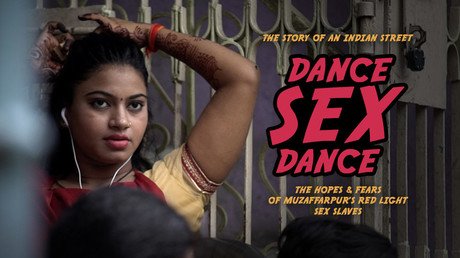Catalan indies, Steve Bannon proteges: Spanish centrist parties pick allies in fragmented elections

Spain goes to the polls on April 28 for the country’s third general election in four years. Spanish politics has splintered in recent years, with the country’s two establishment parties now vying with fringe groups for power.
Prime Minister Pedro Sánchez, who heads the Spanish Socialist Workers’ Party (PSOE), took office in June 2018 after succeeding with a no-confidence motion against former PM Mariano Rajoy and his People’s Party (PP) government. But Sánchez called snap elections in February after his 2019 budget was rejected by right-wing and Catalan pro-independence parties.
The PSOE and PP used to dominate Spanish politics, on the left and right respectively. However, the 2008 financial crisis and years of austerity that followed led to “fatigue among society with the traditional two big parties,” and “disenchantment with politicians in a country that only implemented democracy less than 40 years ago,” Dr. Arantza Gomez Arana of the Birmingham City University’s social sciences department told RT.
Sánchez’s is a minority government, holding only 85 of 350 seats in Spain’s Congress of Deputies. The remaining seats have been fought over bitterly by a number of fringe parties that have gained traction in recent years.
Who’s in the game?
Aside from the aforementioned PSOE and PP, a number of viable contenders have sprung up on the right and left.
Ciudadanos (Citizens) is a populist centrist party in the mold of French President Emmanuel Macron’s En Marche! Party. Birthed in Catalonia in 2005, the party took 40 seats in the 2015 general election, and represents the views of Catalonians who oppose the region’s independence movement. Its leader, Albert Rivera, has ruled out forming a coalition with Sanchez’s PSOE, based on the PM’s alliance with Catalan separatist parties.
Another populist party, this time on the left, Podemos was formed by university professors who participated in a 2011 anti-austerity protest in Madrid. The party succeeded in drawing away left-wing voters dissatisfied with the PSOE, and took 69 seats in the 2015 election. However, the party has since been rocked by infighting and splits.
Also on rt.com WhatsApp blocks channel of Spanish Podemos Party days before electionThe most talked-about party in the runup to Sunday’s vote is undoubtedly Vox, a populist right-wing party supported by former Donald Trump strategist Steve Bannon.
Vox shot to prominence in Andalusian regional elections in 2018, winning 12 seats and supporting a center-right government. The party has called for crackdowns on immigration and abortion and vehemently opposes Catalan independence. It also has hardline conservative views on LGBTQ and women’s rights.
While Vox’s rise mirrors that of populist parties in France, Italy, and the Netherlands, the party is not particularly anti-EU, in the vein of Marine Le Pen’s National Rally. It has, however, positioned itself as a champion of Spanish nationalism and opponent of immigration, much like its other European counterparts.
Vox has capitalized on the fragmentation of the PP’s voter base, and has succeeded in “shaping the agenda” by pushing other conservative parties further to the right, Dr. Alejandro Quiroga, a reader in Spanish history at Newcastle University, told RT. Vox is expected to win a handful of seats in Madrid and southern Spain. Despite predictions of modest success, some Vox voters could be keeping their opinions to themselves when polled.
Also on rt.com Sound familiar? Spanish politician wants Morocco to pay for anti-migrant wallWhat are the issues?
Although Spain’s unemployment rate has fallen from a peak of 26 percent in 2013 to 14 percent in 2018, it is still double the European average. However, economic issues have taken a back seat to the issue of secessionism in Catalonia. Spain has grappled with Basque separatism for decades, and another pro-independence movement poses a direct threat to the country’s integrity.
Left-wing parties favor negotiation with the Catalonians, coupled with financial and limited self-government initiatives. The right favors a crackdown on the power of regional governments, and the PP, Ciudadanos, and Vox have been using Catalonia as a “punching bag to justify their authoritarianism,” Harrington told RT.
Culture-war issues have also risen to the forefront. Sanchez has painted himself as a champion of social justice and liberal reforms, appointing a record number of women to cabinet positions. Vox represents a backlash to Sanchez’s proud liberalism, opposing gender violence laws – which it claims discriminate against men – and advocating a ban on public hospitals performing abortions and sex change operations.
Perhaps the best illustration of the cultural divide between the right and the left can be seen in attitudes towards the Spanish tradition of bullfighting. Animal rights party Pacma – founded 16 years ago to campaign against the sport – looks set to win two seats, according to a recent poll. Vox, on the other hand, has enlisted bullfighters as candidates in Madrid, Malaga, Barcelona and Huesca.
Possible coalitions
Given the fragmentation of Spanish politics, no outright winner will likely emerge. A coalition will therefore form, either on the left or right.
Quiroga said the prospect of a right-wing coalition made up of PP, Ciudadanos and Vox is a “very serious possibility.” That was partly echoed by Harrington, who said the three conservative parties are “not that different” in ideological terms, but that it's a “matter of style” and the ability to form any potential coalition would “come down to the personal rivalries” between the leaders involved, and whether they could be managed.
Also on rt.com Spain, struggling to rebury dictator Franco, hands ultimatum to his familyThe “most probable possibility is the socialist party supported by minority and regional parties,” Marc Sanjaume-Calvet, political science researcher at Universitat Pompeu Fabra told RT. Podemos could also lend their support to a left-wing coalition.
If no coalition can be formed, another general election will be held and Spaniards will go back to the polls for the fourth time in as many years.
Think your friends would be interested? Share this story!















